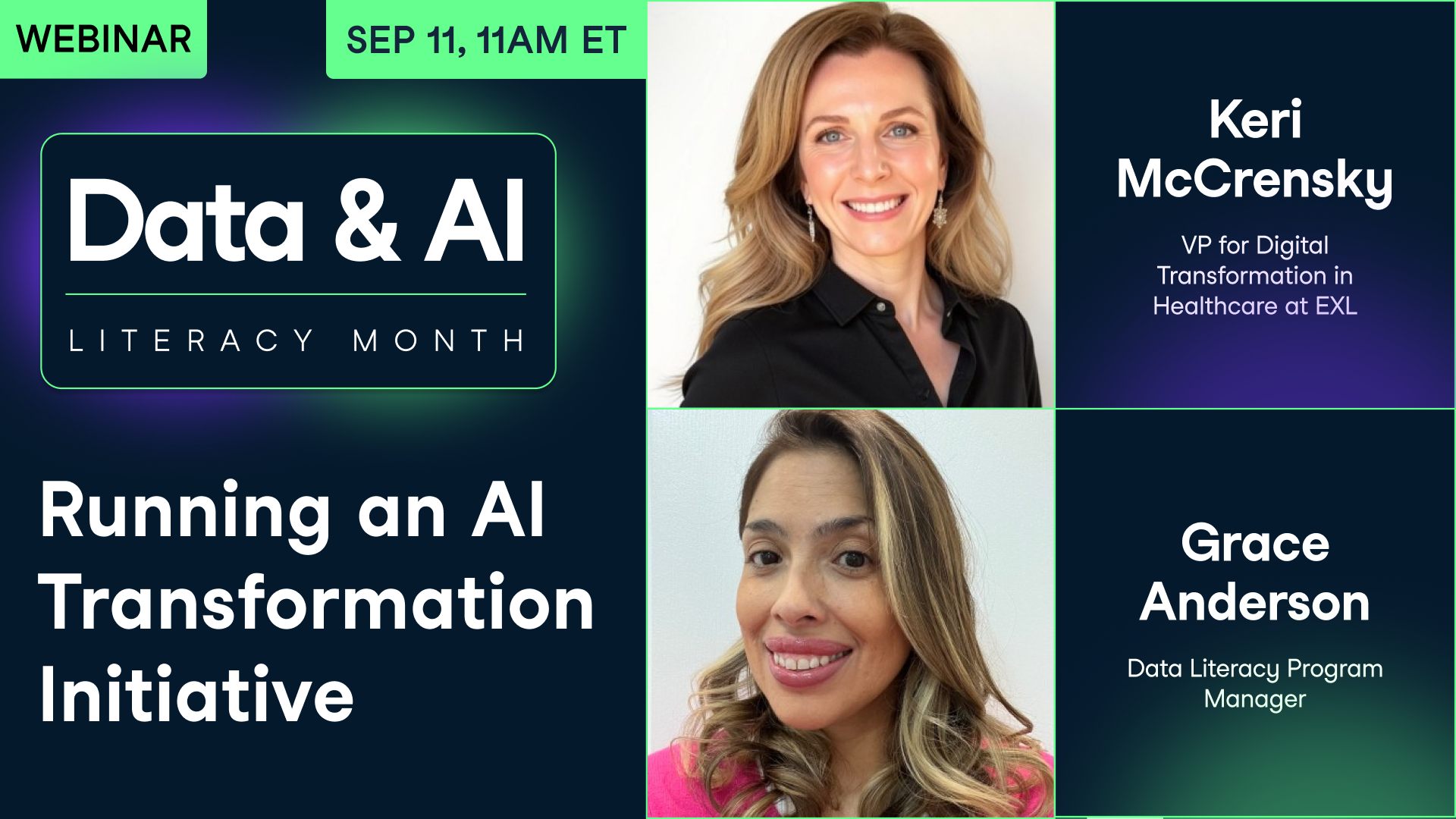Altavoces
¿Formar a 2 o más personas?
Dale a tu equipo acceso a la biblioteca completa de DataCamp, con informes centralizados, tareas, proyectos y mucho más.Running an AI Transformation Initiative
September 2025
Relacionado
webinar
Leading with AI: Leadership Insights on Driving Successful AI Transformation
C-level leaders from industry and government will explore how they're harnessing AI to propel their organizations forward.webinar
Leading with AI: Leadership Insights on Driving Successful AI Transformation
C-level leaders from industry and government will explore how they're harnessing AI to propel their organizations forward.webinar
Adding Value in Pharma Through Data & AI Transformation
In this session three pharmaceutical executives, with experience as Chief Data Officers and strategic consultants, discuss techniques to improve your digital capabilities.webinar
A Blueprint for AI Transformation
Andrea Freire, Chief Data Officer at Adalitika, outlines a step-by-step blueprint for AI transformation.webinar
Increasing Your Organization's Data & AI Maturity
John Thompson, the Head of AI at EY, and Robin Sutara, a Field Chief Data Strategy Officer at Databricks, teach you how to assess your data and AI maturity, and how to improve it.webinar

